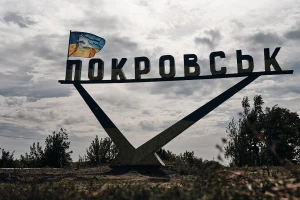
Waiting in line for bread behind military with a "Z" symbol on his back is worse than water. Why Kherson residents decide to stay in city
Despite the environmental catastrophe caused by Kakhovka Dam's explosion, many residents are determined to stay in their homes
Testimonies by locals collected by the Economist shed light on the devastation in the hardest-hit areas.
The destruction of the Kakhovka hydroelectric power station by Russian troops and the subsequent flooding exacerbated the already difficult circumstances faced by the population of Kherson, which had survived the invasion and occupation.
The district known as Korabel island experienced significant damage due to its low-lying nature. Previously known for a street humorously dubbed "Venice" in reference to the water that came up to its front porches, the entire city now bears resemblance to the water-logged Italian city. Among the volunteers assisting their stranded neighbors, Serhiy Rybalchenko, who retrieved a boat from storage and used it to deliver crucial supplies such as nappies, water, and other essentials. Reflecting on the severity of the situation, he comments, “Sometimes, it’s more like the Atlantic.”
Rescue missions are conducted under the threat of mortar and artillery fire from Russian troops. Volunteers operating the boats report that about 250 families remain stranded in the Kuibyshev neigborhood.
“The scariest thing is not the water, but standing in a bread queue behind a military guy in fatigues and a Z symbol on his back. Whatever happens here, we know we are better off now we are back in Ukraine,” the Economist quotes Serhiy, the owner of a local coffee shop.
Despite the dangers, many elderly residents refuse to leave their homes, fueled by a sense of pride and defiance cultivated during the nine-month Russian occupation. “They say they survived invasion and nine months of occupation, so why should they leave now?” says Serhiy.
A new language is emerging among the locals. “Sail to me across the road,” shouted Artyom to his neighbor. The resident of a two-story home that was once on solid ground now finds himself isolated since June 6th. With the only access being boat shuttles, Artyom has chosen to remain in his partially submerged home along with his mother and two dozen chickens. Despite the challenging circumstances, there is enough space for everyone. The chickens occupy one of the three upstairs rooms, while Artyom keeps his salvaged belongings in another. Anticipating the destruction of the dam since the first rumors, Artyom had even purchased a dinghy. “I never thought [the Russians] would be so stupid to do it,” he remarks.
- News














































